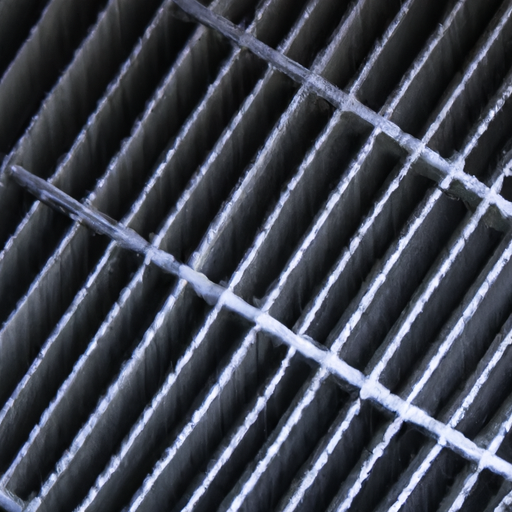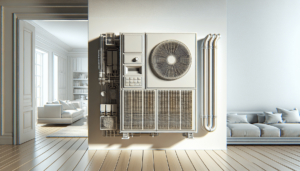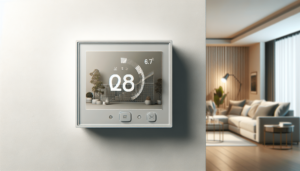

HVAC Services
Get Professional Repairs From The Area's Trusted HVAC Technicians. Ask About Our Services! We Offer Professional Heating & Cooling System Repairs And Guarantee Long-Lasting Results.
Got Question? Call us: (850) 678-2665Financing
Yearly HVAC Servicing: Is It Worth It?

Is it worth it to invest in yearly HVAC servicing? That’s a question on the minds of many homeowners. With the constant demands on our HVAC systems to keep our homes cool in the sweltering summer months and warm and cozy during the chilly winters, it’s essential to ensure their optimal functioning. By scheduling yearly HVAC servicing, you can ensure that your system is running efficiently, which not only prolongs its lifespan but also saves you from potential costly repairs down the road. In this article, we will explore the benefits of yearly HVAC servicing and why it’s a worthwhile investment for your home comfort.
Benefits of Yearly HVAC Servicing
Improved Efficiency
Yearly HVAC servicing can greatly improve the efficiency of your system. Over time, dirt, dust, and debris can accumulate in your HVAC system, causing it to work harder to maintain the desired temperature in your home. This extra strain on the system leads to decreased efficiency and higher energy bills. During a yearly service, a technician will thoroughly clean and inspect your system, ensuring that it is running at its peak performance level. This will not only save you money on your energy bills, but it will also extend the lifespan of your HVAC system.
Energy Savings
One of the biggest benefits of yearly HVAC servicing is the potential for energy savings. When your HVAC system is operating efficiently, it requires less energy to cool or heat your home. By having your system serviced annually, you can ensure that it is running at its optimal level, minimizing energy waste. This can lead to significant savings on your monthly energy bills, allowing you to put the extra money towards other expenses or savings.
Increased Lifespan
HVAC systems are not cheap, so it makes sense to want to get the most out of your investment. Yearly servicing plays a crucial role in increasing the lifespan of your HVAC system. By regularly maintaining and cleaning your system, you can prevent issues that could potentially lead to major breakdowns or damage. A well-maintained HVAC system is less likely to experience major malfunctions, leading to a longer lifespan and saving you money in the long run.
Better Air Quality
Another important benefit of yearly HVAC servicing is improved air quality. Over time, allergens, dust, and other pollutants can accumulate in your HVAC system. When the system is not regularly serviced, these contaminants can be circulated throughout your home, leading to poor indoor air quality. A yearly service includes cleaning and replacing air filters, ensuring that the air in your home is clean and free of pollutants. This is especially important for individuals with allergies or respiratory conditions, as poor indoor air quality can exacerbate their symptoms.
Fewer Breakdowns
Nobody wants to deal with a broken HVAC system, especially during extreme weather conditions. Yearly servicing can greatly reduce the chances of experiencing a breakdown. During a service, a technician will inspect all components of your system, checking for any signs of wear, damage, or potential issues. By addressing these concerns early on, you can prevent major breakdowns from occurring. This not only saves you the inconvenience of a broken HVAC system but also saves you money on costly repairs or replacements.
Warranty Preservation
Most HVAC systems come with a manufacturer’s warranty that covers certain repairs and replacements for a specified period of time. However, these warranties often require regular servicing to remain valid. By scheduling yearly HVAC servicing, you can ensure that your warranty remains intact. This gives you peace of mind knowing that if something does go wrong with your system, you won’t be left with a hefty repair bill.
Enhanced Comfort
Having a comfortable home is important, and a well-maintained HVAC system plays a crucial role in achieving this comfort. Yearly servicing helps to ensure that your system is operating at its best, providing consistent temperature control and airflow throughout your home. A properly functioning HVAC system will help you maintain a comfortable living environment, no matter the weather conditions outside.
Reduced Repair Costs
Regular HVAC servicing can help to minimize the need for costly repairs. By addressing any potential issues or signs of wear during a yearly service, you can prevent these problems from developing into major breakdowns that require expensive repairs. A stitch in time saves nine, and this is certainly true when it comes to the maintenance of your HVAC system.
Increased Safety
Safety is a top priority for any homeowner, and yearly HVAC servicing can help ensure that your system operates safely. During a service, a technician will thoroughly inspect your system, checking for any potential safety hazards such as gas leaks or faulty electrical connections. By addressing these issues early on, you can prevent accidents or dangerous situations from occurring.
Early Detection of Issues
One of the key benefits of yearly HVAC servicing is early detection of issues. During a service, a technician will carefully inspect all components of your system, checking for any signs of wear, damage, or potential problems. By catching these issues early on, you can address them before they turn into major headaches or costly repairs. This proactive approach to maintenance allows you to take action before an issue becomes an emergency.
How HVAC Systems Work
Overview of HVAC Systems
HVAC (Heating, Ventilation, and Air Conditioning) systems are responsible for controlling the temperature, humidity, and air quality in commercial and residential buildings. These systems work by using a combination of heating, cooling, and ventilation to create a comfortable indoor environment.
Components of an HVAC System
An HVAC system consists of several key components, each playing a crucial role in its overall functionality. These include the furnace or heat pump, air conditioner, air handler, evaporator coil, condenser coil, ductwork, vents, and thermostat. Each component works together to heat, cool, and circulate air throughout the building.
Understanding Air Conditioning
In warm weather, air conditioning plays a vital role in keeping your home cool and comfortable. Air conditioning systems contain a refrigerant, which absorbs heat from the indoor air and releases it outdoors. This process cools the air, which is then circulated back into your home via ductwork and vents.
Heating Systems in HVAC
During cold weather, heating systems are essential for maintaining a warm and cozy indoor environment. HVAC systems can use various heating methods, including furnaces, heat pumps, and boilers. These systems generate heat and distribute it throughout the building, ensuring that the desired temperature is maintained.
Ventilation in HVAC
Proper ventilation is crucial for maintaining good indoor air quality. HVAC systems incorporate ventilation systems that remove stale air from the building and replace it with fresh air from the outside. This helps to control humidity levels, remove odors, and eliminate pollutants, creating a healthier and more comfortable indoor environment.
Thermostats and Controls
Thermostats and controls are the brains behind an HVAC system. These devices allow you to set and adjust the temperature, monitor humidity levels, and control the overall operation of your system. With advancements in technology, many thermostats now offer programmable settings, allowing you to customize your indoor climate according to your preferences and schedule.
Importance of Regular HVAC Maintenance
Optimal Performance
Regular HVAC maintenance is essential for ensuring optimal performance of your system. Over time, dust, dirt, and debris can accumulate in the various components of your HVAC system, causing it to work harder to achieve the desired temperature. A well-maintained system, on the other hand, operates efficiently and effectively, providing consistent comfort throughout your home.
Preventive Maintenance
Preventive maintenance is all about addressing potential issues before they become major problems. By scheduling yearly HVAC servicing, you can catch any signs of wear, damage, or potential issues early on. This allows you to take proactive measures to prevent breakdowns and costly repairs down the line.
Addressing Potential Problems
During a yearly service, a technician will thoroughly inspect your HVAC system, checking for any signs of wear, damage, or potential problems. By addressing these issues early on, you can prevent them from escalating into major headaches or expensive repairs. Addressing potential problems in a timely manner helps to extend the lifespan of your system and save you money.
Maximizing Energy Efficiency
Regular HVAC maintenance plays a crucial role in maximizing energy efficiency. When your system is operating efficiently, it requires less energy to heat or cool your home. This results in lower energy bills and reduces your carbon footprint. By investing in yearly servicing, you can ensure that your system is operating at its optimal level, minimizing energy waste and maximizing savings.
Preserving Manufacturer’s Warranty
Most HVAC systems come with a manufacturer’s warranty that covers certain repairs and replacements for a specified period of time. However, these warranties often require regular servicing to remain valid. By scheduling yearly HVAC maintenance, you can preserve your manufacturer’s warranty, giving you peace of mind knowing that you are protected in case of any issues with your system.
Frequency of HVAC Servicing
Recommendations from Manufacturers
To determine the frequency of HVAC servicing, it is important to consult the recommendations of the manufacturer. Most manufacturers recommend yearly servicing to ensure optimal performance and to preserve warranty coverage. However, some systems may require more frequent servicing, especially if they are more heavily used or located in areas with high levels of dust or pollution.
Factors Affecting Service Frequency
Several factors can affect the frequency of HVAC servicing. These include the age and condition of your system, its usage, climate conditions, and the level of air quality in your area. Older systems may require more frequent servicing to ensure they continue to operate effectively. Similarly, systems that are used more frequently or in areas with poor air quality may require more frequent maintenance to address any potential issues.
Climate and Usage Considerations
The climate in which you live can also impact the frequency of HVAC servicing. For example, in areas with harsh winters, heating systems may need more attention to ensure they operate properly during the colder months. Similarly, in hot and humid climates, air conditioning systems may need more frequent servicing to handle the demands of cooling a building in extreme temperatures.
Customized Service Plans
When it comes to the frequency of HVAC servicing, it is important to consider the unique needs of your system. A reputable HVAC service provider can help you develop a customized service plan based on the specific requirements of your system and your home. By working with professionals who understand your system, you can ensure that it receives the necessary attention and maintenance it needs to operate effectively.
Costs and Savings of Yearly HVAC Servicing
Service Costs
The cost of yearly HVAC servicing can vary depending on various factors, such as the size and complexity of your system, the location of your home, and the reputation of the service provider. While there is an upfront cost associated with servicing, it is important to view it as an investment rather than an expense. Regular servicing can help you avoid costly repairs and replacements down the line, saving you money in the long run.
Savings on Energy Bills
One of the major benefits of yearly HVAC servicing is the potential for energy savings. When your system is operating efficiently, it requires less energy to cool or heat your home. By investing in regular maintenance, you can ensure that your system is running at its optimal level, minimizing energy waste. This can lead to significant savings on your monthly energy bills.
Avoiding Expensive Repairs
By scheduling yearly HVAC servicing, you can catch any potential issues or signs of wear early on. Addressing these issues before they escalate can help you avoid costly repairs down the line. A stitch in time saves nine, and this is certainly true when it comes to the maintenance of your HVAC system.
Long-Term Financial Benefits
While the upfront cost of yearly servicing may seem like an additional expense, it can provide long-term financial benefits. Regular maintenance helps to extend the lifespan of your system, preventing major breakdowns and costly replacements. Additionally, a well-maintained system operates more efficiently, leading to lower energy bills. By investing in yearly servicing, you are investing in the longevity and cost-effectiveness of your HVAC system.
DIY vs Professional HVAC Servicing
DIY Maintenance Tasks
There are certain HVAC maintenance tasks that homeowners can perform themselves. These include regularly changing air filters, keeping outdoor units free from debris, and ensuring that vents and registers are clean and unobstructed. These tasks can help to improve the performance and efficiency of your system. However, it is important to recognize the limitations of DIY maintenance and to seek professional help for more complex tasks.
Benefits of Professional Servicing
While there are certain maintenance tasks you can do yourself, there are many benefits to hiring a professional HVAC service provider. These professionals have the expertise and training to thoroughly inspect and service your system, ensuring that it is running at its optimal level. They also have access to advanced equipment and tools that allow for more accurate diagnostics and repairs. Additionally, professional servicing ensures compliance with safety standards and helps to avoid voiding manufacturer warranties.
Expertise and Training
Professional HVAC technicians undergo extensive training and certification to ensure they have the knowledge and skills necessary to service and repair HVAC systems. They stay up-to-date with the latest industry advancements and best practices, allowing them to provide high-quality service and effectively address any issues with your system.
Advanced Equipment and Tools
HVAC service providers have access to advanced equipment and tools that allow for more accurate diagnostics and repairs. They also have the knowledge and expertise to effectively use these tools to identify and address any potential issues with your system. This ensures that your HVAC system receives the highest level of care and attention.
Compliance with Safety Standards
HVAC systems involve complex electrical, gas, and refrigerant components. Attempting to perform repairs or maintenance without the necessary expertise can be dangerous and potentially lead to accidents or damage to your system. Professional HVAC service providers ensure compliance with safety standards to protect both you and your system.
Avoiding Voided Warranties
Most HVAC systems come with a manufacturer’s warranty that covers certain repairs and replacements for a specific period of time. However, these warranties often require regular servicing by a professional to remain valid. By hiring a professional HVAC service provider, you can ensure that your system receives the necessary maintenance to preserve the manufacturer’s warranty. This gives you peace of mind knowing that you are protected in case of any issues with your system.
Finding a Reliable HVAC Service Provider
Research and Background Check
When looking for a reliable HVAC service provider, it is important to do your research and conduct a background check. Look for companies that have been in business for a significant period of time and have a strong reputation in your community. Check online reviews and ask for recommendations from friends, family, and neighbors who have used HVAC services in the past.
License and Insurance
Before hiring an HVAC service provider, make sure they are properly licensed and insured. A valid license ensures that the company meets the necessary requirements to operate in your area. Insurance protects you in case of any accidents or damage that may occur during servicing. Don’t hesitate to ask for proof of license and insurance from any HVAC company you are considering.
Experience and Expertise
Experience is key when it comes to HVAC servicing. Look for companies that have been in business for several years and have a track record of providing high-quality service. Additionally, consider the expertise of the technicians who will be servicing your system. Look for companies that have technicians who are trained, certified, and experienced in working with your specific HVAC system.
Customer References and Reviews
Customer references and reviews are a great way to gauge the quality of service provided by an HVAC company. Ask for references from past clients and reach out to them to get their feedback on the company’s professionalism, expertise, and customer service. Additionally, check online review platforms to see what other customers are saying about their experience with the company.
24/7 Emergency Service
HVAC issues can arise at any time, often when you least expect them. That’s why it’s important to choose an HVAC service provider that offers 24/7 emergency service. This ensures that help is available whenever you need it, even outside of regular business hours. Knowing that you have access to emergency service can provide peace of mind and minimize the inconvenience of a system breakdown.
Maintenance Plans and Contracts
Some HVAC service providers offer maintenance plans and contracts that provide ongoing servicing for your system. These plans typically include scheduled maintenance visits and may offer additional benefits such as priority service, discounted repairs, or extended warranties. Consider opting for a maintenance plan that fits your needs and budget, as it can help ensure the long-term health and efficiency of your HVAC system.
What to Expect During HVAC Servicing
Inspection of HVAC Components
During a typical HVAC servicing, a technician will thoroughly inspect all components of your system. This includes the furnace or heat pump, air conditioner, air handler, condenser coil, evaporator coil, ductwork, vents, and thermostat. The technician will check for any signs of wear, damage, or potential issues that may impact the performance of your system.
Cleaning and Lubrication
Cleaning and lubrication are important parts of yearly HVAC servicing. Dust, dirt, and debris can accumulate in various components of your system, reducing its efficiency and potentially causing damage. A technician will clean the condenser and evaporator coils, remove any debris from the outdoor unit, and clean or replace air filters. Additionally, the technician will lubricate any moving parts to ensure smooth operation.
Air Filter Replacement
Regularly replacing air filters is essential for maintaining good indoor air quality and maximizing the efficiency of your system. During yearly servicing, a technician will check your air filters and replace them if necessary. This helps to ensure that your system is operating at its optimal level and that the air in your home is clean and free of pollutants.
Thermostat Calibration
Accurate temperature control is crucial for a comfortable indoor environment. During servicing, a technician will calibrate your thermostat to ensure that it is reading and responding to temperature accurately. This helps to ensure that your HVAC system is maintaining the desired temperature in your home effectively and efficiently.
Checking Refrigerant Levels
Refrigerant is a key component of air conditioning systems, and proper refrigerant levels are essential for optimal performance. During a service, a technician will check the refrigerant levels in your system and add more if necessary. This helps to ensure that your air conditioning system is operating at its peak efficiency, providing effective cooling during the hot summer months.
Detecting Potential Issues
One of the main purposes of yearly HVAC servicing is to detect potential issues before they become major problems. A technician will carefully inspect all components of your system, checking for any signs of wear, damage, or potential issues. By addressing these issues early on, you can prevent major breakdowns and costly repairs down the line.
Signs That Your HVAC System Needs Servicing
Insufficient Heating or Cooling
If you notice that your HVAC system is no longer providing sufficient heating or cooling, it may be time for servicing. Poor performance can be an indication of various issues, from clogged air filters to malfunctioning components. A professional HVAC technician can diagnose and address the problem, restoring your system’s functionality.
Strange Noises or Odors
Unusual noises or odors coming from your HVAC system are often signs of potential problems. Rattling, grinding, or squealing noises may indicate loose or damaged components, while strange odors can be a sign of mold or other contaminants in your system. If you experience any of these issues, it is important to have your system serviced to prevent further damage or potential health hazards.
Poor Airflow
If you notice that the airflow from your vents is weak or inconsistent, it may be a sign that your HVAC system needs servicing. Poor airflow can be caused by various factors, including clogged air filters, blocked ductwork, or malfunctioning components. A professional HVAC technician can identify the underlying cause and restore proper airflow in your home.
Frequent On-Off Cycling
If your HVAC system frequently turns on and off, it could be a sign of an underlying issue. This can lead to increased energy consumption, decreased efficiency, and potential damage to your system. Yearly servicing can help identify and address any issues that may be causing this frequent cycling, ensuring the proper operation of your HVAC system.
High Energy Bills
If you’ve noticed a sudden increase in your energy bills without a corresponding change in usage, it may be a sign that your HVAC system is not operating efficiently. Yearly servicing can help identify any issues that may be causing your system to consume more energy than necessary, allowing you to take the necessary steps to resolve the problem.
Uneven Temperatures
If you experience significant temperature differences between rooms or areas of your home, it may indicate an issue with your HVAC system. Uneven temperatures can be caused by various factors, such as blocked vents, leaky ductwork, or malfunctioning components. Yearly servicing can help identify and address these issues, ensuring that your home is consistently comfortable.
Malfunctioning Thermostat
If you are experiencing issues with your thermostat, such as inaccurate temperature readings or unresponsive controls, it may be time for servicing. A malfunctioning thermostat can lead to improper operation of your HVAC system, resulting in discomfort and reduced energy efficiency. Having your system serviced can help identify and address any issues with your thermostat, ensuring accurate temperature control.
Conclusion
Yearly HVAC servicing is more than just an optional maintenance task – it is a vital part of ensuring the efficiency, longevity, and safety of your HVAC system. By investing in regular servicing, you can enjoy improved energy efficiency, reduced repair costs, enhanced comfort, and increased safety. It is important to find a reliable HVAC service provider who can provide customized maintenance plans and has the expertise and experience to meet your specific needs. Regular servicing allows for early detection of issues, preventing major breakdowns and costly repairs. So, don’t overlook the importance of yearly HVAC servicing – it is worth it in the long run.







